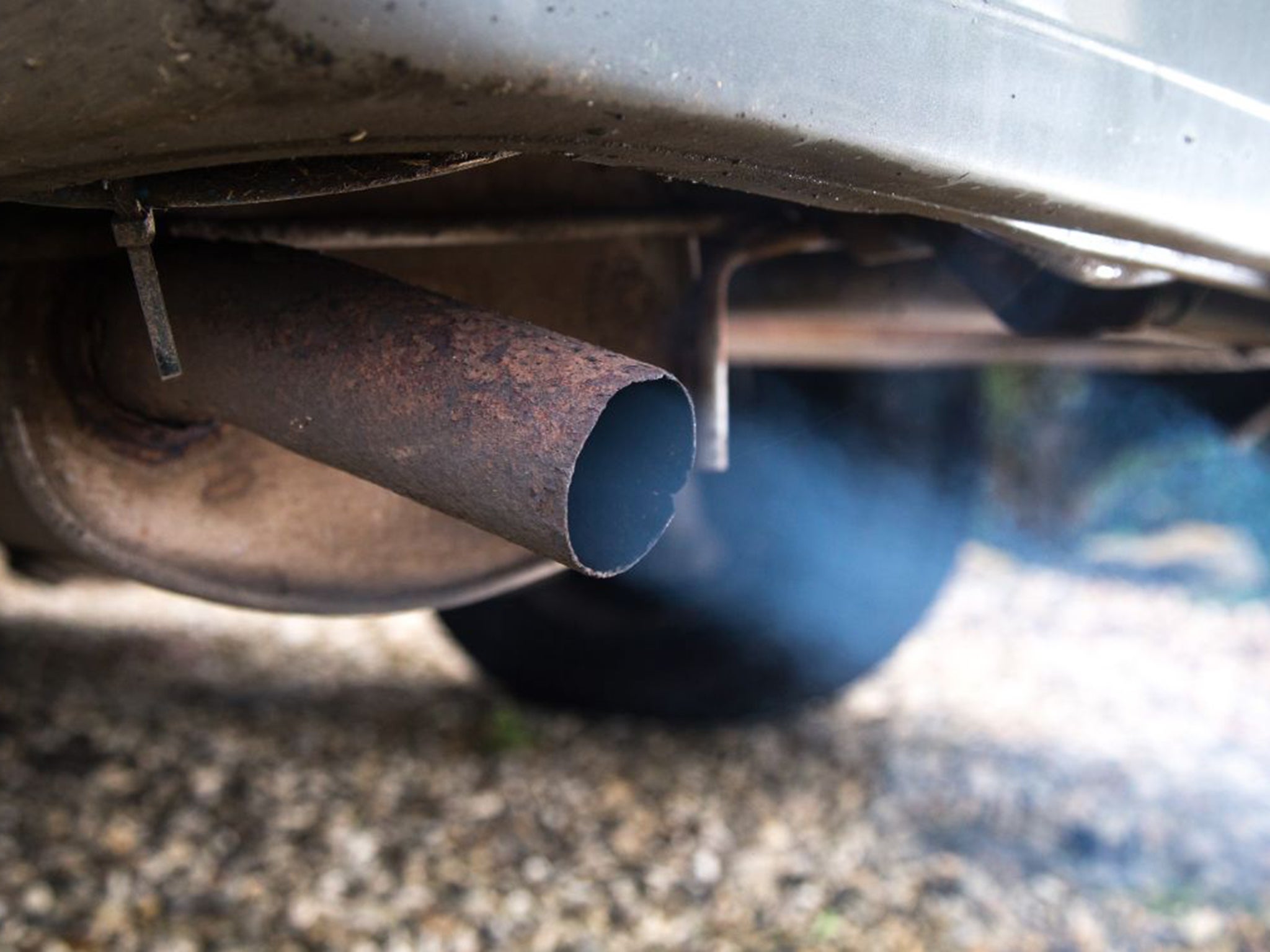Total car ban is the only way to beat air pollution in cities, expert warns
An influx of electric vehicles will not solve the toxic air crisis, which can only be beaten by ensuring there are 'fewer cars, not just cleaner cars', Professor Frank Kelly claims

Your support helps us to tell the story
From reproductive rights to climate change to Big Tech, The Independent is on the ground when the story is developing. Whether it's investigating the financials of Elon Musk's pro-Trump PAC or producing our latest documentary, 'The A Word', which shines a light on the American women fighting for reproductive rights, we know how important it is to parse out the facts from the messaging.
At such a critical moment in US history, we need reporters on the ground. Your donation allows us to keep sending journalists to speak to both sides of the story.
The Independent is trusted by Americans across the entire political spectrum. And unlike many other quality news outlets, we choose not to lock Americans out of our reporting and analysis with paywalls. We believe quality journalism should be available to everyone, paid for by those who can afford it.
Your support makes all the difference.The government must rid the UK's cities of cars to reduce dangerous levels of air pollution, according to a leading expert.
An influx of electric vehicles will not solve the toxic air crisis, which can only be beaten by ensuring there are "fewer cars, not just cleaner cars", Professor Frank Kelly claims.
The environmental health expert said that the Conservative Party's pollution strategy, which aims to ban the sale of new petrol and diesel vehicles by 2040, "does not nearly go far enough".
Mr Kelly urged the government to expand the public transport network rather than encourage a switch to electric cars.
The scientist, who chairs the Committee on the Medical Effects of Air Pollutants, explained that the brakes and tyres on electric vehicles produce "highly polluting" toxic particles.
Writing in the Guardian, he said: "Even zero-emission vehicles are not the complete answer to poor air quality.
"The capital’s population grew at twice the rate of the UK as a whole between 2011 and 2015.
"The safe and efficient movement of people around the city can only be achieved through a clean and expanded mass transit system served by buses, overground trains and the underground system - and as much active transport in the form of walking and cycling as is feasibly possible."
This year London breached its annual air pollution limit, set by the EU, within a week.
A World Health Organisation report in 2016 found 10 towns and cities in the UK, including London, Glasgow, Leeds, Nottingham, Southampton and Oxford, had breached what are regarded as safe levels of tiny particles known as PM10.
Thirty-nine urban areas also breached the safe levels for a measure of even smaller particles, known as PM2.5.
The Royal College of Physicians estimates has claimed that particle pollution is linked to 29,000 early deaths in Britain every year, while NO2 emissions, largely from diesel vehicles, has been linked to 23,500 early deaths a year.
The total number of early deaths linked to air pollution annually is thought to be around 40,000, because some people are affected by both particle pollution and NO2 emissions.
Theresa May accepted that the government had failed to bring the UK into compliance with EU regulations following a High Court ruling that it was not doing enough.
ClientEarth, the NGO which took the Government to court over unlawful levels of air pollution, said the government must act to tackle the “urgent public health crisis”.
Environment Secretary Michael Gove insisted he was taking immediate action to tackle polluted air, pointing to an extra £255m being handed to local councils to “accelerate their progress”.
The cash will be spent on retrofitting buses and other public transport, changing road layouts and altering features such as roundabouts and speed humps.
Join our commenting forum
Join thought-provoking conversations, follow other Independent readers and see their replies
Comments